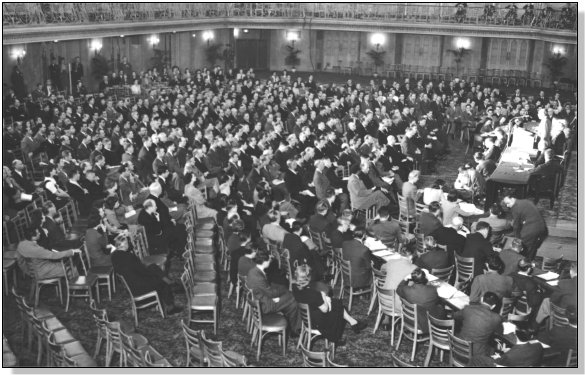The history of ICAO
Commercial
24 February 2021
In 1922, the International Commission for Air Navigation, ICAN, was started in france. It was an alliance of countries who agreed to set standards and procedures for aerial navigation. Then, in 1929, it was revised to make it more equal between member states, and to adjust for its "wartime mentality". Later in 1944, the United States invited fifty-five countries to participate in the Chicago Conference. Fifty-four of them attended; fifty-two signed the first version of the Chicago Convention, or more formally the Convention on International Civil Aviation. Today, 193 countries have signed the convention. ICAO was established officially in 1947, and became a UN special agency in the same year.
The purpose of the Chicago Convention is to promote safe and peaceful international civil aviation by setting rights, procedures, and standards. ICAO acts as a regulatory body to make sure that countries are following the proper guidelines, and provides assistance where needed. For example, ICAO has standards on air traffic control phraseology, airport security protocol, among many other facets of the aviation industry. ICAO is a UN Special Agency.

Delegates in attendance at the Chicago Conference in 1944. Image courtesy of ICAO.
Historians consider the Chicago Conference one of the most effective and productive international conferences ever, and ICAO is one of the most effective UN agencies. Why is this? First, ICAO's goals are specific, technically oriented, and very achievable. What makes ICAO different from other NGOs and IGOs is the nature of the aviation industry itself. When there are problems, such as terrorism or air safety, there are very specific, measurable, and attainable solutions for these problems. Whether it be enhancing airport security requirements, improving communications, or prohibiting a dangerous good, the answer is usually not difficult to come to. Second, the aviation industry is a key part of the global economy, and governments understand that their own economies depend largely on international air transport. Therefore, countries are willing to participate in and cooperate with ICAO because it is in their best economic interest. They understand that issues with the aviation industry that could disrupt passenger demand or cargo operations have the potential to bring many parts of society to a grinding halt, disrupting critical supply chains.
Overall, ICAO is perhaps one of the most important international organizations. They hold the crucial responsibility for keeping civil aviation and international skies safe and equal among its member countries, allowing our globalized world to operate and grow as it does.
References
- "Convention on International Civil Aviation". 1944. https://www.icao.int/publications/pages/doc7300.aspx
- "Convention on International Civil Aviation Signed at Chicago on 7 December 1944" [List of signing countries]. ICAO. https://www.icao.int/secretariat/legal/List%20of%20Parties/Chicago_EN.pdf
- "The History of ICAO and the Chicago Convention". ICAO. https://www.icao.int/about-icao/History/Pages/default.aspx
- "Photo Gallery". ICAO. https://www.icao.int/ChicagoConference/Pages/chicago-conference-photo-gallery.aspx
- Sundaram, S.P. "PEACE THROUGH CO-OPERATION: THE ICAO EXAMPLE." Peace Research 34, no. 2 (2002): 95-99. http://www.jstor.org/stable/23684930.